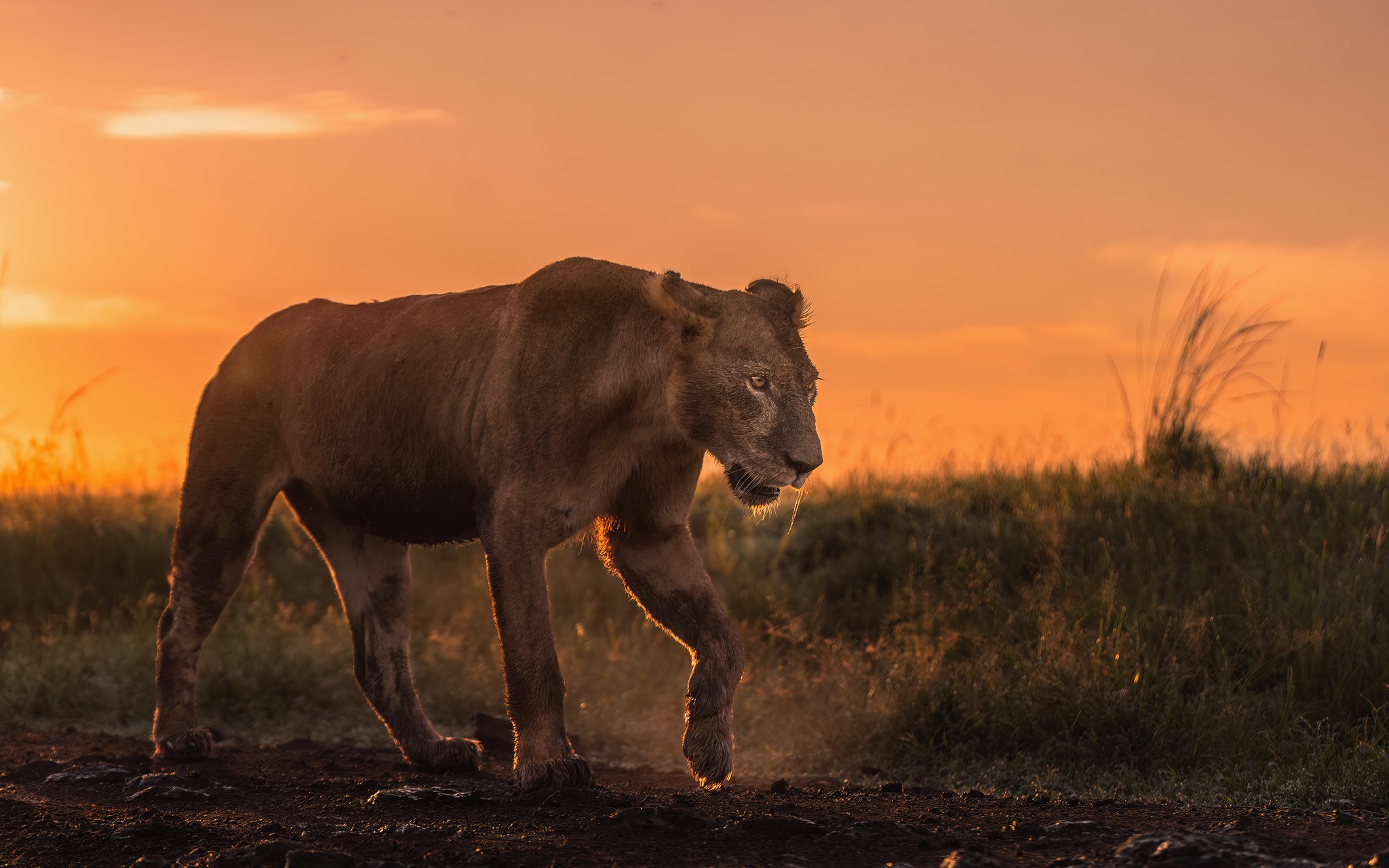Lions, often referred to as the “kings of the jungle,” are among the most formidable predators in the animal kingdom. With their superior strength and sophisticated hunting strategies, lions have cemented their status within the wild ecosystem. This article provides a detailed analysis of the lion’s hunting abilities, covering their physical characteristics and effective hunting tactics.
1. Superior Physical Traits
Lions possess a powerful physique with well-developed muscles, especially in their legs and shoulders, enabling them to leap and strike with great force. An adult lion can weigh between 330 to 550 pounds, with males generally being larger than females. Another distinctive feature is the thick mane of male lions, which not only enhances their majestic appearance but also protects their necks during fights.
Their teeth and claws are formidable weapons. Long, sharp canines can pierce deeply into the flesh of prey, while strong claws help them grip and subdue their targets during an attack.

2. Sophisticated Hunting Strategies
Lions typically hunt in prides, with each member playing a specific role. The coordinated teamwork among pride members increases their chances of a successful hunt.
- Selecting Prey: Lions often target large animals like antelopes, buffaloes, and zebras. They may also hunt smaller animals when food is scarce. Lions tend to choose weak, old, or injured prey to minimize injury risk and increase success rates.
- Approach: Lions use stealth to approach their prey, often moving through tall grass to remain concealed. They get as close as 30 feet before launching an attack.
- Attack: When close enough, lions burst forward with speeds up to 37 mph. They use their claws and canines to bring down prey, usually aiming for the neck or head to quickly incapacitate.
- Coordination: In a pride, lionesses typically handle most of the hunting. They work together to encircle and attack from multiple angles, with some members driving the prey towards others lying in wait.
3. Intelligence and Adaptability
Lions are not only powerful but also intelligent. They can learn and adapt to their surroundings. For example, in areas with complex terrains, lions may alter their strategies to suit the environment, using rocks and vegetation for concealment.
4. Crucial Role in the Ecosystem
Lions play a vital role in maintaining ecological balance. By hunting, they help control the populations of herbivores, indirectly protecting vegetation from overgrazing. Their presence also creates a competitive environment, driving the evolution and development of other species.

Conclusion
The hunting abilities of lions are a perfect combination of physical prowess and sophisticated strategy. They are not only top predators but also crucial players in maintaining the balance of their ecosystems. Understanding their hunting abilities provides deeper insights into the animal kingdom and the complex relationships within nature.

RELATED posts
The Defensive Abilities of Buffalo: Strength and Defensive Strategies
The African buffalo, also known as the Cape buffalo, is one of the largest and...
The Hunting Abilities of Crocodiles: A Detailed Analysis of Strength and Strategy
Crocodiles are among the most ancient and efficient predators on Earth, having survived for over...